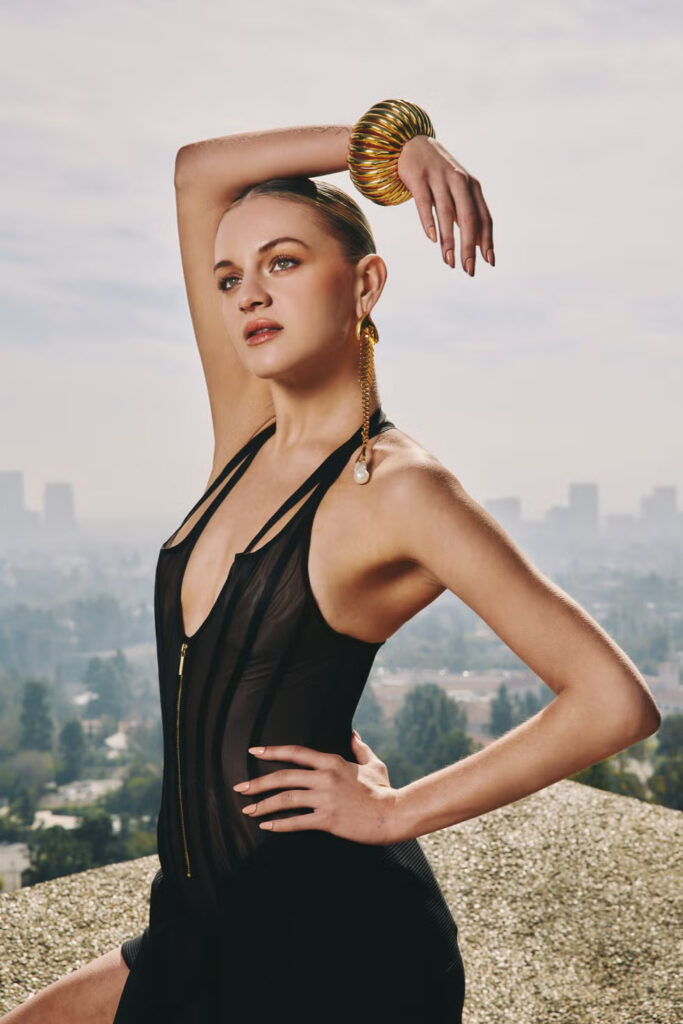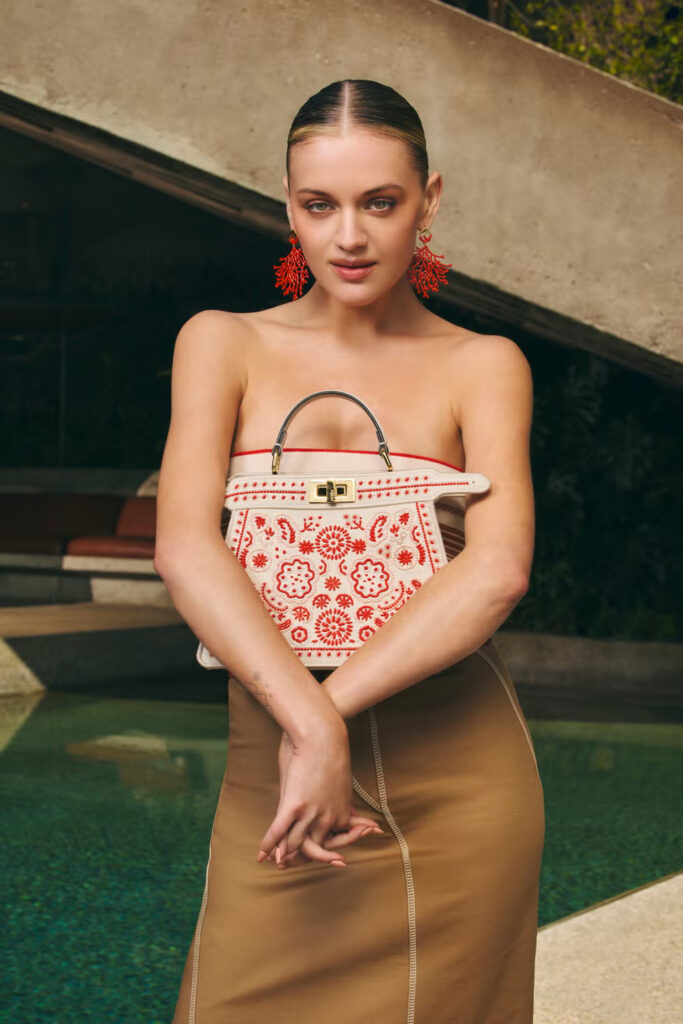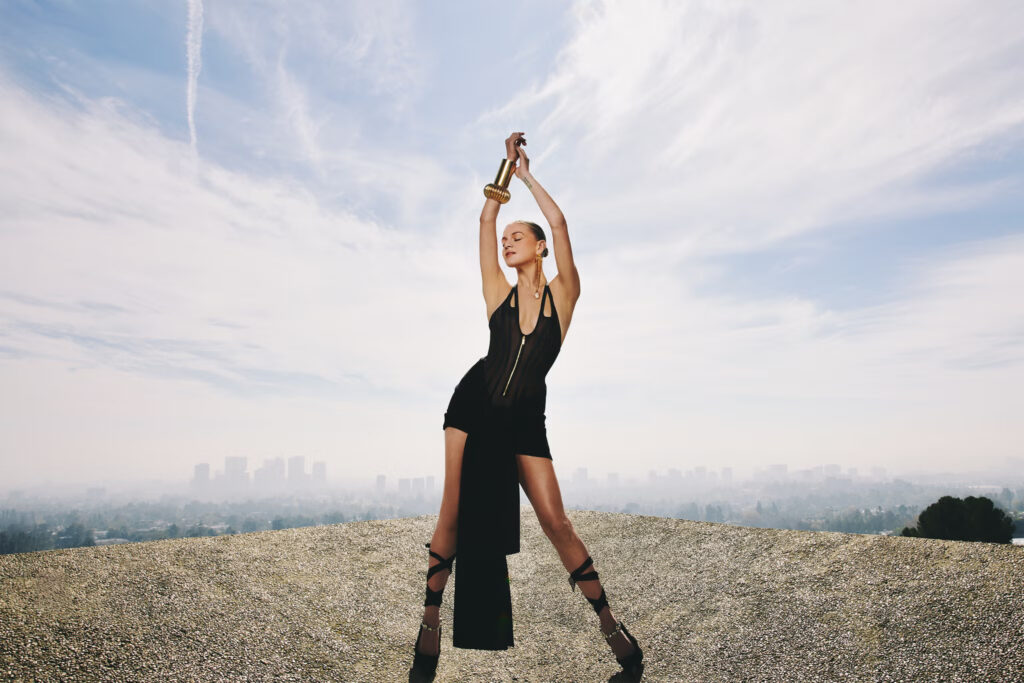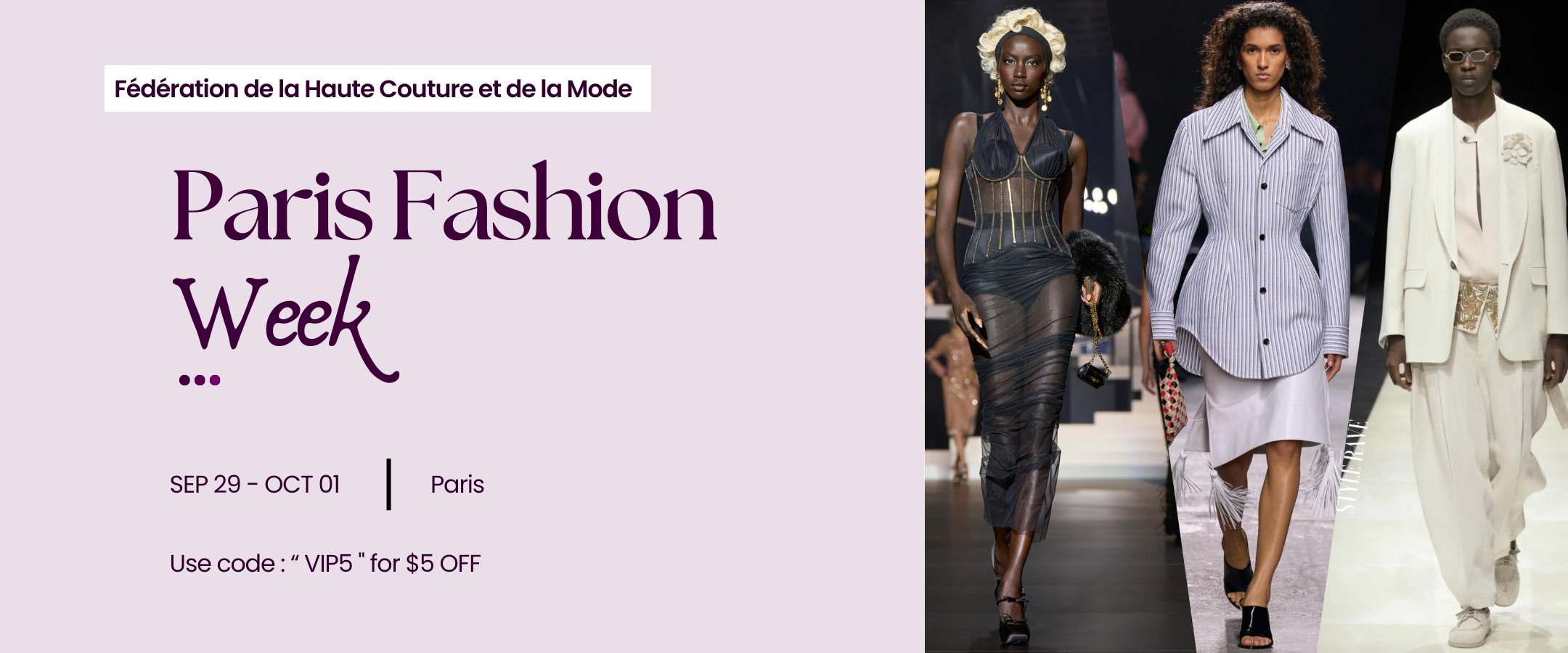It’s Valentine’s Day, and Kelsea Ballerini is backstage on tour, wrapped in a gray hoodie, surrounded by racks of clothes and a white guitar resting nearby. Between bites of a pink-sprinkled doughnut, she pauses to reflect on an anniversary that changed her career. Two years ago, she released Rolling Up the Welcome Mat, a raw six-song EP detailing her divorce from fellow country artist Morgan Evans. The release was cathartic, but also terrifying.
“I remember being like, ‘Oh man, I’m terrified,’” she says. “But the next morning, people were connecting with it. That was everything”
The vulnerability of that moment launched her into a new realm of artistry—and a new audience. Country music fans began showing up to shows with signs that read, “Just got a divorce.” Ballerini approaches each of those interactions with care. “I try never to celebrate it until I know it’s a good thing,” she explains.
“I don’t ever want to be a poster child for divorce. I always make sure my first reaction is, ‘Are you okay?”
Today, the storm has passed, and she’s grounded in a new chapter. Her personal life has transformed, and she’s been in a relationship with Outer Banks actor Chase Stokes for over two years. During our interview, he casually pops into the dressing room, earning a warm “Hi, honey” from her. Her new album Patterns reflects that growth—a project written largely on tour, with songs like “Sorry Mom,” an emotional apology to her mother, and “We Broke Up,” a thoughtful and mature take on endings. These tracks were born not just from personal reflection but also from therapy and the journey of learning how to live in contentment without glossing over the hard parts.


When the time came to create Patterns, she turned to an all-female team of close friends: Hillary Lindsey, Karen Fairchild, Jessie Jo Dillon, and Alysa Vanderheym. “I was so frozen after Welcome Mat, because it wasn’t meant to be commercial,” she says. “It didn’t even count toward my record contract.” She found herself unsure of how to begin again, so she did what felt natural—she called her friends, rented a cozy spot, and stocked it with wine. “I was like, ‘If nothing comes from it, it’s still two days of womanhood,’” she laughs. But something did come: they wrote “Sorry Mom,
” “Two Things,” and “Baggage.” It wasn’t just a writing session—it was a year of walking life together
Ballerini’s music has sometimes been labeled “sad girl country,” but this album moves beyond a single tone. It holds space for pain, joy, reflection, and reconciliation. Writing happy songs, she admits, is a challenge. “When you’re happy, you want to go exist in your happiness, not sit down with your guitar,” she says. Still, Patterns mirrors the full complexity of her past year and a half. “Even ‘First Rodeo,’ which is a love song, is really saying,
‘’I fell off the horse. I felt like damaged goods. But now I want to try again”
This tour is a culmination of years of work and vision. “It’s always been my goal to be a woman who headlines arenas,” she says. “Especially in country music, you don’t see it a lot.” Now, as she stands under arena lights and feels the crowd—really feels them—she knows it was all worth it. The show is structured as an emotional journey, one that she gets to relive each night with thousands of people.

As country music opens up to broader influences and cross-genre collaborations, Ballerini embraces the change. “If we, as country artists, can collab with top 40 or R&B artists, why wouldn’t we welcome others in?” she says.
“Music is for everybody. Country music, at its heart, is the people’s story”
That belief shows up in her actions as well. When Tennessee attempted to restrict drag performances, Ballerini brought drag queens onstage at the CMTs. Her advocacy for LGBTQ rights and her commitment to inclusivity are clear. “I had to shift from wanting to speak to a wide audience to wanting to speak to my audience,” she says.
“At the end of the day, I want the people who listen to my music to know what I stand for”
She shares a moment from a recent show: “Two days ago, we had a queen in the audience in Philly. I felt so deeply grateful that they felt safe enough to be there in the wig. That’s what I care about now.”
The journey from a teenager writing songs to process her parents’ divorce to a woman confidently commanding sold-out arenas hasn’t been easy—but it’s been authentic. A few years ago, over a holiday dinner, she asked her manager what her blind spot was. “He said, ‘You need to stop acting like you’re new here,’” she recalls. That was a turning point. Now, Ballerini is no longer shrinking herself or her success. She’s standing in it fully, knowing she’s earned every moment.


